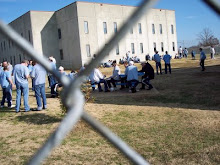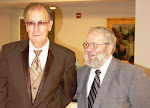Recently I read parts of a doctoral dissertation by a Facebook friend. It's over my head; I am finally acknowledging that my lack of formal education is a handicap, not something to boast about, but it's too late!
Anyway, the portion of this thesis which caught my eye was on the dichotomy of Constantinian church structure versus the Jewish community structure. Most of what follows here is what I infer from what I have read so far, which quantity is really insufficient for drawing the conclusions I'm heading for.......so I'm subject to correction (as always) and open to criticism.
To me, the ideal local church has always been one modeled after Acts 2:41-47. This is also the "church" which I've never found......it seems not to exist today. Apparently this is the "Jewish community" model which dominated Christianity for some time after Acts 2--until the fourth century when Constantine came into power.
The Constantinian model is described as "a move from house churches to large basilicas, infant baptism (since now citizenship in the state was equivalent with membership in the church, which was no longer voluntary), a move from multiple church leadership to more authority vested in the priest and in the church hierarchy, and a shift of emphasis from awaiting God's final victory over the powers in the age to come, to primary concern about the fate of each individual's soul."
That quote is from an article by Lois Barrett:
http://www.religion-online.org/showarticle.asp?title=2794
She actually identifies 4 models of the "church" but I think the first 3, generally speaking, can be lumped together with the Constantinian model in opposition to the Jewish community model. One of the others is described as follows (this is so good I kept expanding the quote...so it's quite lengthy....but "Hello, 21st Century 'church'"!!!
"...the church as voluntary association in somewhat like a religious civic club. This model assumes a segmented life: the soccer club takes care of one's recreational needs; the business association takes care of one's professional needs; the church takes care of one's spiritual needs. The church is a place to mold good citizens, civil people, good people who will go out and do good things that benefit society as a whole. Relationships with government are often of the reform variety. The good people in the church are sent out to work in their particular vocation in a Christian manner. Churches of this model can be liberal or conservative, evangelical or mainline. They are interested in operating by democratic principles. They sometimes have a type of civil religion. They think that the real power lies in Washington and Ottawa. They are as much a part of the establishment as the previous model."
(more to come....)
Thursday, September 17, 2009
Subscribe to:
Post Comments (Atom)








2 comments:
Clarification--I mentioned a doctoral paper then went on to quote from a Lois Barrett article.......two different things. The thesis gave me the idea, but I used the Barrett quotes because they were handy.
I gotta say, Ed, that you are not alone in mourning your lack of highr education. At the same time, you have a heart for truth and righteous living and that matters more than anything.
As for the Constantinian influence on the church....I believe Constantine did the most harm that has ever been done to the church and the bishops of that time were not prepared to refuse to bow to secular compromise. I truly see the submission to Rome as the first great apostasy and the most troubling thing is that almost without exception, the leaders of the church at that time did not recognize they were selling out.
Look what followed: the fall of the Roman empire in a short time, the Muslim conquest of Christianity's birth cities in Egypt and Syria, and ultimately the "Dark Ages".
I've been a bit of a church history bum over the last few years and have some issues with the council of Nicaea reaching the conclusions they did based on Constantine's, and later, Constantius', pressure for a consensus that suited them!
I think it is inherent to a truly regenerated soul to want a return to a more communal and daily church that is lived out, not just "held" on Sundays.
Post a Comment